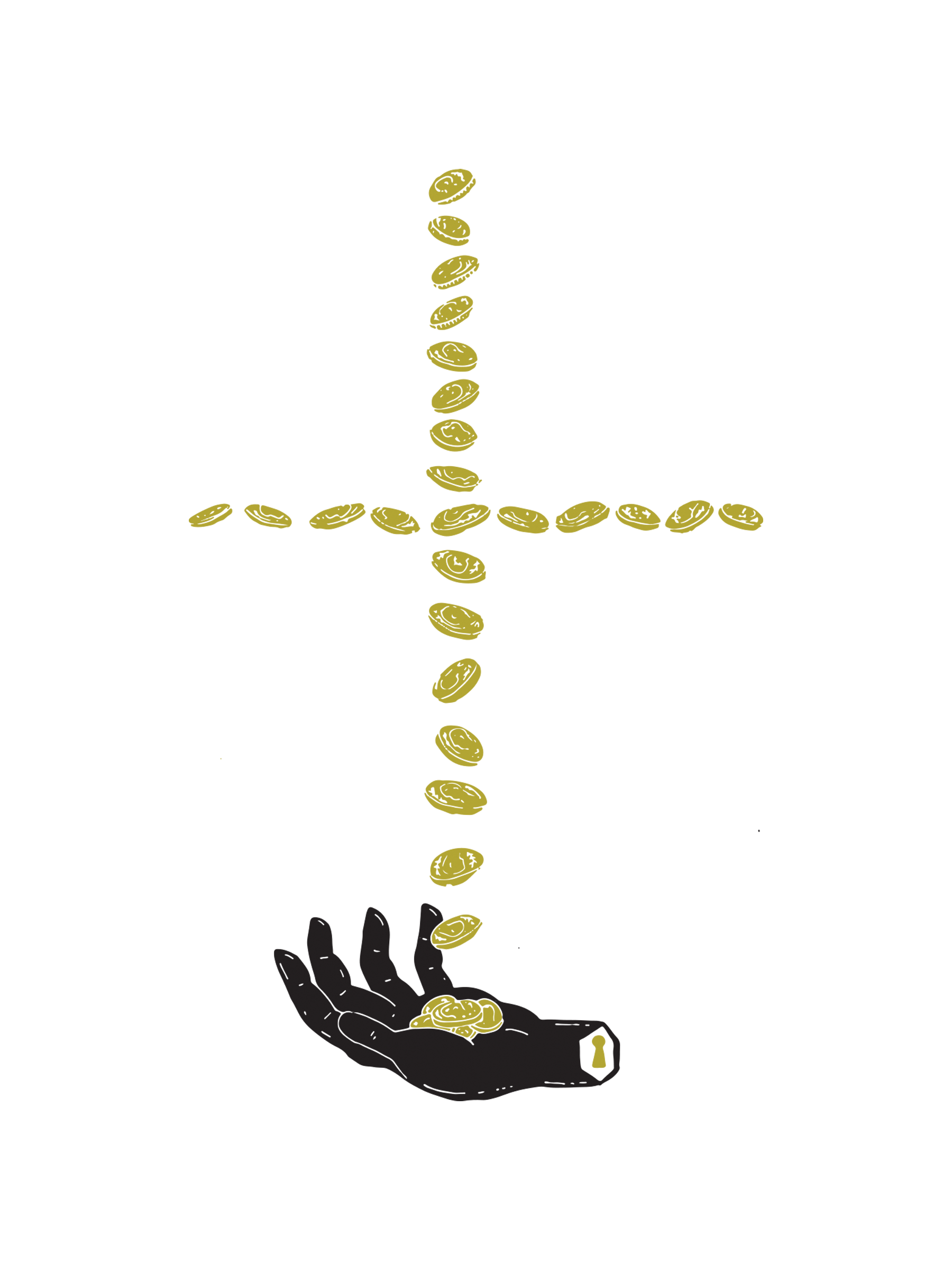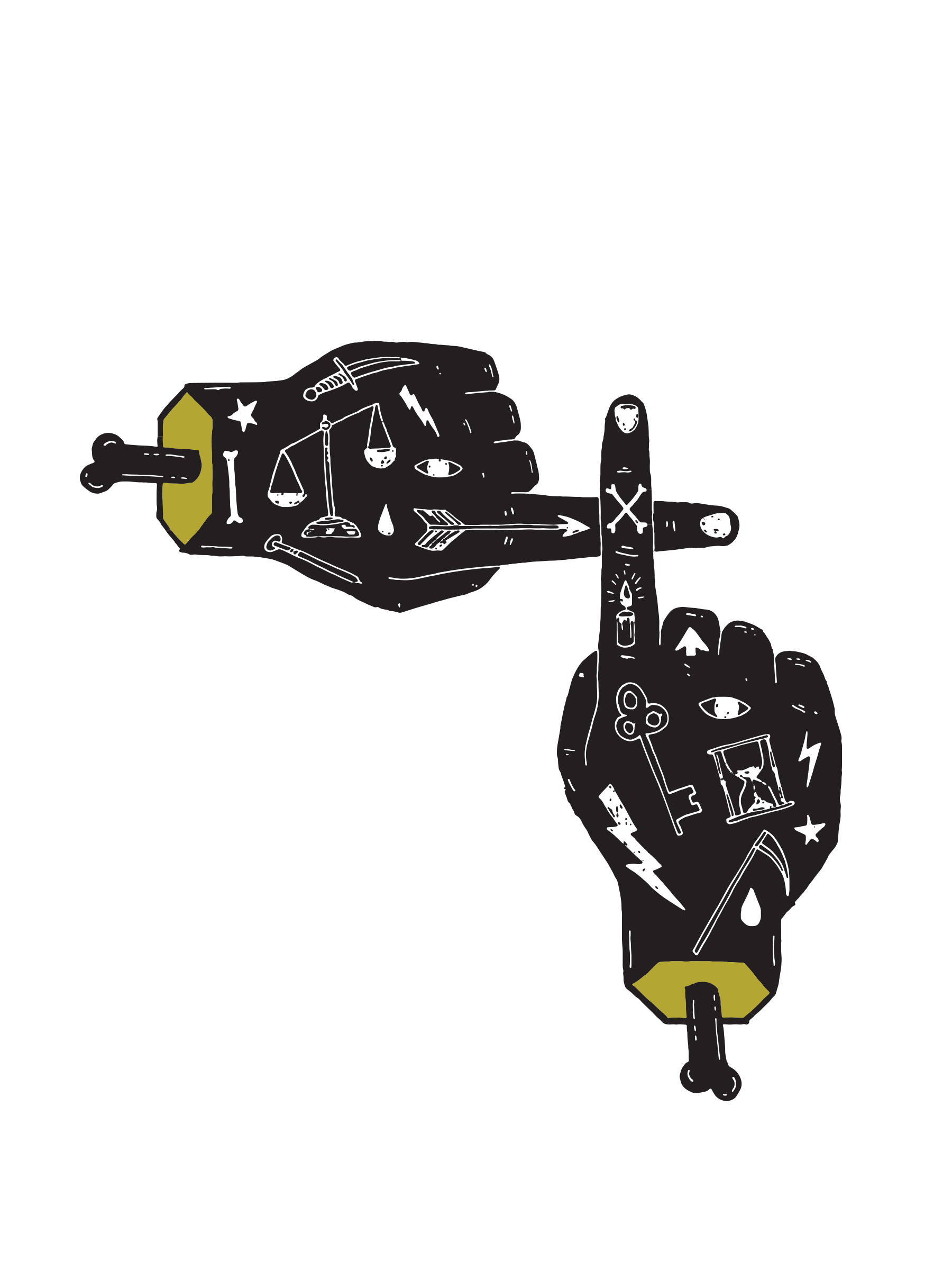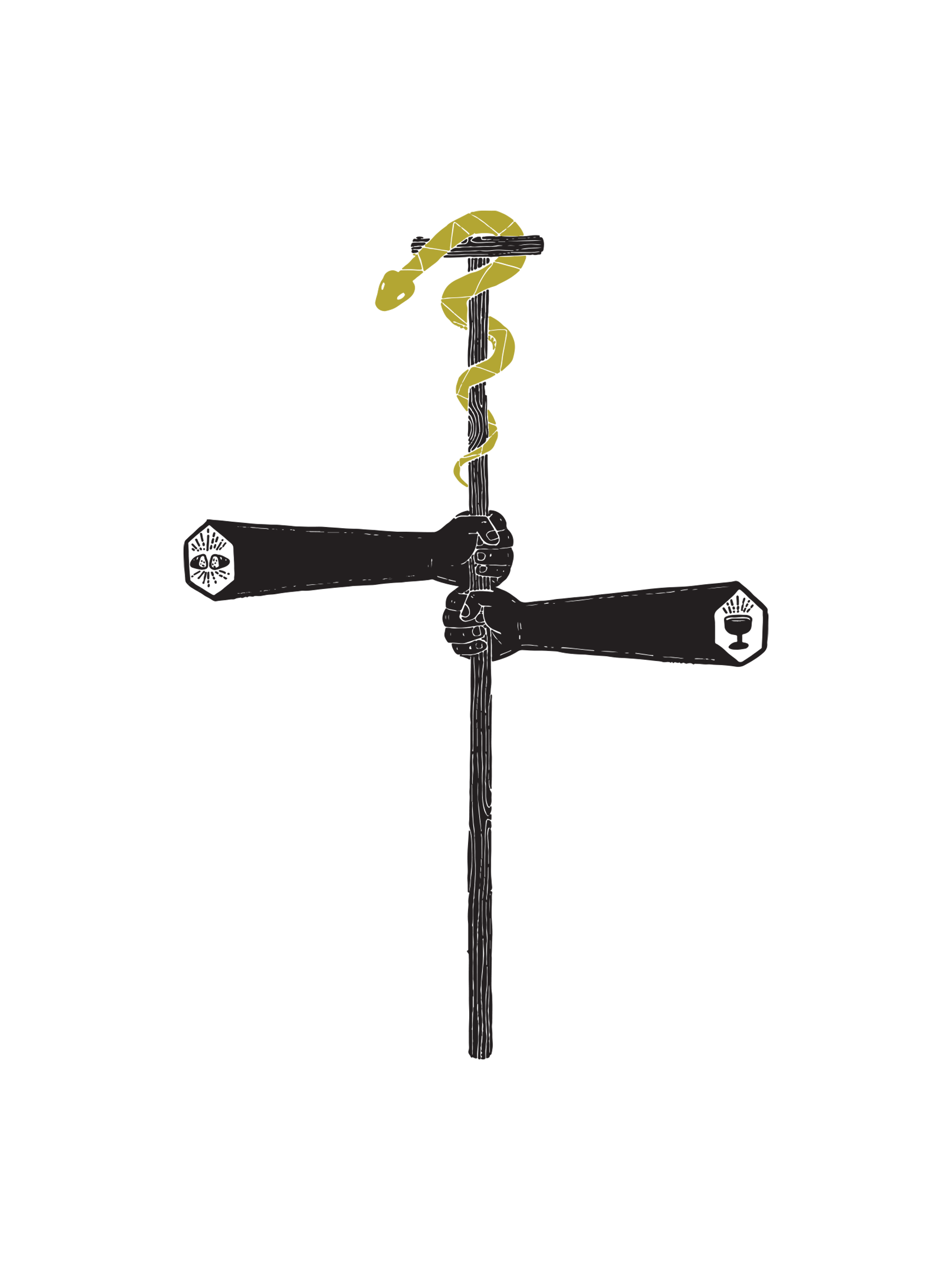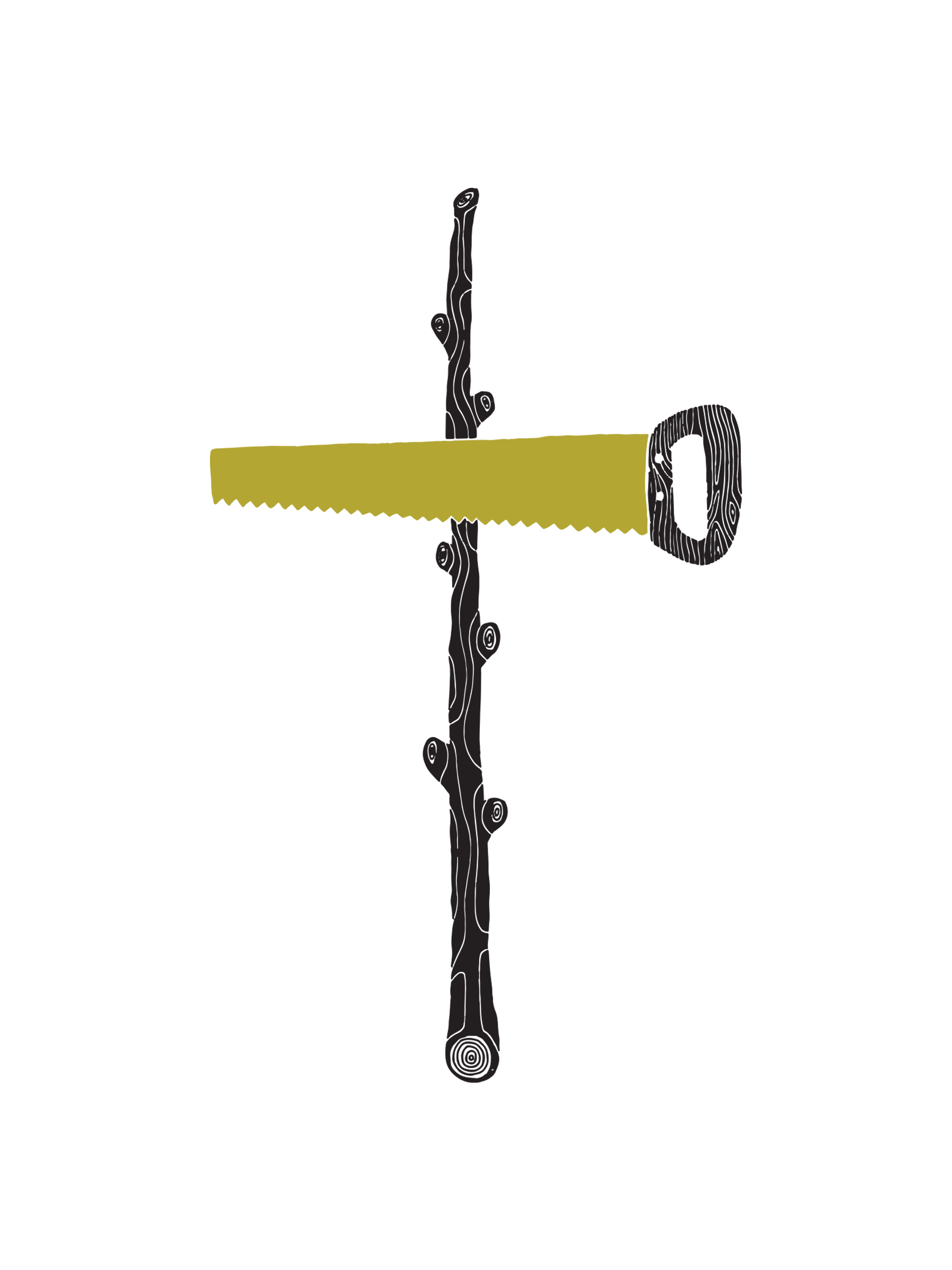REFLECTIONS
RETRACING JESUS’ FINAL STEPS
The Stations of the Cross began as a remembrance that pilgrims had when they were retracing Jesus’ finals steps in Jerusalem up to Golgotha where he was crucified. Wanting to share that practice and experience with people who couldn’t make the trip to Jerusalem, local stations of meditation were created and became tradition. You can find this tradition on the inside of many churches today.
This journey to the cross is not only a meditation of Jesus accomplishing what He came to do—the redemption of humanity through His own willful sacrifice—it’s also a contemplation of Jesus silently participating in some of the worst aspects of the human experience. We see Him being tempted to quit, betrayed by friend, convicted in by unjust political system. He experiences physical pain, mockery, public humiliation, broken family relationships, abandonment, and one of our greatest fears—DEATH.
Jesus was in no way insulated from the worst parts of the human condition. On the cross He quotes King David saying “My God My God, Why have you forsaken me?” The Jesus cried out these words, he was experiencing the worst pain—separation from God.
Many of us feel the weight of anxiety and fear as we journey through the current world. During this season of Lent, we as a community look to the life and teachings of Jesus. We think that One who was in the midst of such political and empirical turmoil, who spoke the words of “Be not afraid” and “Come to me all you are weary and carrying a heavy load, for I will give you rest” is someone who can awaken us to new life.
These stations are a cross-section of elements, ideas, and objects from Jesus’ journey to the cross. As you work through these stations, may you see the that we are not troubled guests in this world. We are not forsaken. May you see that the good news of this season was expressed best by Jesus when He said, “I have told you these things so that in me you may have peace. In this world you will have trouble. But take heart! I have overcome the world.”
JESUS IS TEMPTED
“My soul is very sorrowful, even to death; remain here, and watch with me.”
—Matthew 26:38
Read
Then Jesus went with them to a place called Gethsemane, and he said to his disciples, “Sit here, while I go over there and pray.” And taking with him Peter and the two sons of Zebedee, he began to be sorrowful and troubled. Then he said to them, “My soul is very sorrowful, even to death; remain here, and watch with me.” And going a little farther he fell on his face and prayed, saying, “My Father, if it be possible, let this cup pass from me; nevertheless, not as I will, but as you will.” And he came to the disciples and found them sleeping. And he said to Peter, “So, could you not watch with me one hour? Watch and pray that you may not enter into temptation. The spirit indeed is willing, but the flesh is weak.” Again, for the second time, he went away and prayed, “My Father, if this cannot pass unless I drink it, your will be done.”
—Matthew 26:36-46
Reflect
The cup of death combined is combined with the serpent of temptation. It represents what Jesus experienced when he found himself in Gethsemane desperately praying about what lay ahead of Him—the road to death. He faced the pressures, pain, and grief that come with being human. He was tempted to give in. In saying no to temptation, Jesus says yes to agony and pain and grief and death.
Why?
When tempted with a way out, Jesus chooses to stay. He looked temptation in the eye, and embraced the cup of wrath because of his great love for you. He said yes because through drinking the cup of wrath, Jesus was destroying the power of sin, satan, and death in our lives.
Pray
Father, help me to see Jesus absorbing agony, pain and grief because of his great love for me. I admit that temptations arise in my life and I, like the disciples, fall asleep and fall to my own weakness. Help me, through the power of your Holy Spirit, to face temptation in a way that drives me into deeper relationship with you.
JESUS IS BETRAYED
“The Son of Man is going to be delivered into the hands of men, and they will kill him. And when he is killed, after three days he will rise.”
—Mark 9:31
Jesus said to him, “Friend, do what you came to do.” Then they came up and laid hands on Jesus and seized him.
—Matthew 26:50
Read
While he was still speaking, Judas came, one of the twelve, and with him a great crowd with swords and clubs, from the chief priests and the elders of the people. Now the betrayer had given them a sign, saying, “The one I will kiss is the man; seize him.” And he came up to Jesus at once and said, “Greetings, Rabbi!” And he kissed him. Jesus said to him, “Friend, do what you came to do.” Then they came up and laid hands on Jesus and seized him.
—Matthew 26:47-50
Reflect
It’s easy to see Judas’ betrayal of Jesus as something we would never do. Let’s not forget that when Jesus was betrayed by Judas and Jesus was arrested, the prophesy about the shepherd being struck and the sheep scattering was fulfilled. Peter denied Jesus. The others fled in fear. Their betrayal and abandonment of Jesus gives us insight into our own human condition; into our own proclivities to abandon God when life moves in a direction we did not anticipate, or we experience a loss we feel we don’t deserve.
We may not betray in the same manner as Judas or abandon in the same way as Peter, but as the Prophet Isaiah spoke, “We all, like sheep, have gone astray, each of us has turned to our own way; and the LORD has laid on him the iniquity of us all.”
Pray
Father, forgive me for the ways that I have betrayed and abandoned you covertly and overtly. I confess that my heart wanders from you. I have doubts, I have fears, and I am prone to abandon you when life gets difficult. Empower me by your Holy Spirit to have the the courage to follow you even through the hard things. Grant me the wisdom to know that you are working all things together, even the bad things, for good.
JESUS IS CONDEMNED
“Shall I crucify your king?” pilate asked.
“We have no king but caesar,” the chief priests answered.
—John 19:15
“But this is your hour - when darkness reigns.”
—Luke 22:53
Read
At daybreak the council of the elders of the people, both the chief priests and the teachers of the law, met together, and Jesus was led before them. “If you are the Messiah,” they said, “tell us.”
Jesus answered, “If I tell you, you will not believe me, and if I asked you, you would not answer. But from now on, the Son of Man will be seated at the right hand of the mighty God.”
They all asked, “Are you then the Son of God?” He replied, “You say that I am.” Then they said, “Why do we need any more testimony? We have heard it from his own lips.”
—Luke 22:66-71
Reflect
Innocent. Jesus stood before Pilate not as a criminal, but as utterly innocent. He was condemned by an unjust system. He was put on trial by a religious establishment and political regime that felt threatened by his message. False witnesses testified against him. His trail was unfair. Jesus was put on trial and condemned to die because of his unwavering commitment to break the powers of injustice that plague the human heart. He did so willingly. He did so freely. He did so to absorb our sin fully and completely. He did so to unleash the power of forgiveness in our lives.
Pray
Father, it’s easy to look at the unjust treatment of Jesus and believe that I would have treated him differently. The truth is that I struggle to treat others with justice and forgiveness. Forgive me for the ways I have treated others unfairly. I have withheld forgiveness. I have condemned others by refusing to forgive them. I have allowed bitterness to grow roots in my heart. Father, allow me to experience your forgiveness and extend it to others.
JESUS IS CONDEMNED
“Shall I crucify your king?” pilate asked.
“We have no king but caesar,” the chief priests answered.
—John 19:15
“But this is your hour - when darkness reigns.”
—Luke 22:53
Read
At daybreak the council of the elders of the people, both the chief priests and the teachers of the law, met together, and Jesus was led before them. “If you are the Messiah,” they said, “tell us.”
Jesus answered, “If I tell you, you will not believe me, and if I asked you, you would not answer. But from now on, the Son of Man will be seated at the right hand of the mighty God.”
They all asked, “Are you then the Son of God?” He replied, “You say that I am.” Then they said, “Why do we need any more testimony? We have heard it from his own lips.”
—Luke 22:66-71
Reflect
Innocent. Jesus stood before Pilate not as a criminal, but as utterly innocent. He was condemned by an unjust system. He was put on trial by a religious establishment and political regime that felt threatened by his message. False witnesses testified against him. His trail was unfair. Jesus was put on trial and condemned to die because of his unwavering commitment to break the powers of injustice that plague the human heart. He did so willingly. He did so freely. He did so to absorb our sin fully and completely. He did so to unleash the power of forgiveness in our lives.
Pray
Father, it’s easy to look at the unjust treatment of Jesus and believe that I would have treated him differently. The truth is that I struggle to treat others with justice and forgiveness. Forgive me for the ways I have treated others unfairly. I have withheld forgiveness. I have condemned others by refusing to forgive them. I have allowed bitterness to grow roots in my heart. Father, allow me to experience your forgiveness and extend it to others.
JESUS IS GIVEN HIS CROSS
“Just as Moses lifted up the snake in the desert, so the Son of Man must be lifted up, that everyone who believes in him may have eternal life.”
—John 3:14-15
Read
Then Jesus told his disciples, “If anyone would come after me, let him deny himself and take up his cross and follow me. For whoever would save his life will lose it, but whoever loses his life for my sake will find it. For what will it profit a man if he gains the whole world and forfeits his soul? Or what shall a man give in return for his soul?”
—Matthew 16:24-26
Reflect
Jesus chose to take up the cross. He did so willingly. He did so freely. He did so obediently. He did so with the interests of others in mind. This is what Paul was talking about when he penned the iconic words in Philippians 2:3-8.
Do nothing from selfish ambition or conceit, but in humility count others more significant than yourselves. Let each of you look not only to his own interests, but also to the interests of others. Have this mind among yourselves, which is yours in Christ Jesus, who, though he was in the form of God, did not count equality with God a thing to be grasped, but emptied himself, by taking the form of a servant, being born in the likeness of men. And being found in human form, he humbled himself by becoming obedient to the point of death, even death on a cross.
Jesus carried the cross of death, so that we could have the kind of life that death cannot take away from us.
Pray
Father, I find myself doing things in selfish ambition and conceit. I protect myself and my own self interests in subtle and not so subtle ways. I push others down to lift myself up. I confess that this is damaging to myself and others. Pease give me the courage, strength, and wisdom to walk in humility and to seek the interests of others.
JESUS FALLS
“Unless a kernel of wheat falls to the ground and dies, it remains only a single seed. But if it dies, it produces many seeds.”
—John 12:24
Read
And as they led him away, they seized one Simon of Cyrene, who was coming in from the country, and laid on him the cross, to carry it behind Jesus. And there followed him a great multitude of the people and of women who were mourning and lamenting for him.
—Luke 23:26-27
Reflect
The image of a branch and leaves falling represents a bigger reality. There are aspects of a tree that seasonally fall. They detach, die, drop, and decay. The show us a picture of the the reality of the human condition.
When Jesus falls, we see a picture of his humanity; his diminishing strength as he moves closer to his impending public execution. After a brutal beating and being forced to carry the 80-pound Roman cross, Jesus walks the painful path ahead of him. Yet he does it without being gripped by bitterness or the desire for retaliation against his oppressors. He willingly walks in weakness and as he does we begin to see the beautiful strength of weakness as a subversive power over sin and death.
Pray
Father, life is hard. It is filled with disappointment, disillusionment, and death. I confess that the circumstances I face in life cause me to stumble and fall. When I fall because of what others do to me, I feel myself slipping into bitterness and unforgiveness. When I fall because of my own actions, I feel myself slipping into denial, blame shifting, and self-justification. Break me free from the these dysfunctional patterns and give me the strength the walk through the hard things in this life in a way that forms me more deeply in you.
SIMON CARRIES JESUS’ CROSS
“If anyone would come after me, he must deny himself and take up his cross and follow me.”
—Matthew 16:24
Read
And as they led him away, they seized one Simon of Cyrene, who
was coming in from the country, and laid on him the cross, to carry it behind Jesus. And there followed him a great multitude of the people and of women who were mourning and lamenting for him.
—Luke 23:26-27
Reflect
Two hands holding 2 pieces of wood. Together they form the symbol of a cross. In Jesus’ journey to death, he is overcome with exhaustion from being beaten and forced to carry his own cross. He reaches a point when he can no longer carry the physical burden laid upon him. A Roman guard pulls a man, Simon from Cyrene, out of the crowd and forces him to carry Jesus’ cross up the hill to Golgotha where Jesus will be crucified.
Imagine this moment as if it were your closest friend who has been wrongfully sentenced, brutally flogged, and then on their way to being publicly executed. You watch them fall and then are ordered by the agents of death to carry the very device that will be uses to execute your friend.
It’s too much to imagine, but this is exactly what is unfolding in Jesus’ life. Getting close to Jesus and following him means carrying the things he calls us to carry. It means being available to the vulnerable and weak. It means bearing the burdens of others. The beautiful reality of this calling is that Jesus, through his death, took on our ultimate burden—the weight of our sin. And through his spirit, he freely gives us the strength to walk with others the same way Simon walked with him.
Pray
Father, I confess that I am carrying things in my life right now that are heavy; too heavy for me to carry alone. Help me to cast my burdens on you. Help me to have the courage to share my burdens with trusted friends. Ultimately, help me to come to you, the one who promise to never leave me or forsake me; the one who promises to give me rest.
JESUS IS STRIPPED
“For if men do these things when the tree is green, what will happen when it is dry?”
—Luke 23:31
“Father, forgive them, for they don’t know what they are doing.” And they divided up his clothes by casting lots.
—Luke 23:34
Read
When the soldiers had crucified Jesus, they took his garments and divided them into four parts, one part for each soldier; also his tunic. But the tunic was seamless, woven in one piece from top to bottom, so they said to one another, “Let us not tear it, but cast lots for it to see whose it shall be.” This was to fulfill the Scripture which says,
“They divided my garments among them, and for my clothing they cast lots.”
—John 19:23-24
Reflect
The whole crucifixion process was to humiliate the criminal and anyone who associated with them. As occupiers of a foreign land, Rome announced through crucifixions, “no one defies Rome and lives to tell the tale.” They stripped their victims of everything—beating them beyond recognition, stripping them naked, and destroying any thread of human dignity.
We all feel the shame of nakedness. Nakedness does not necessarily mean not having clothes on. Nakedness can mean the loss of whatever it is you cover yourself to protect your vulnerabilities. Your relationship status. Your bank account. Your make up. Your narratives. Your capacity. Your accomplishments. Whatever it is your vulnerable self hides behind.
Jesus allowed himself to be stripped naked so that we could be covered with his beauty, goodness, and truth.
Pray
Father, when Jesus was stripped, he was stripped so that I no longer have to hide behind my success, self-image, wealth, or anything else I look to for a sense of worth and meaning. I don’t have to hide my shame, guilt, or regret. Because Jesus was stripped, I can come to you an confess my sin, and my shortcomings without any fear of rejection. Jesus was stripped so that I can be robed in righteousness. Thank you, father.
JESUS IS NAILED TO THE CROSS
“My God My God, why have you forsaken me?”
—Matthew 27:46
Read
The soldiers nailed Jesus to a cross. Then they threw dice to divide his clothes between them. The soldiers stayed there to guard him. They put a sign above his head with the charge against him written on it:
“THIS IS JESUS, THE KING OF THE JEWS.”
Two criminals were nailed to crosses beside Jesus—one on the right and the other on the left. People walked by and shouted insults at Jesus. They shook their heads and said, “You said you could destroy the Temple and build it again in three days. So save yourself! Come down from that cross if you really are the Son of God!”
—Matthew 27:32-40
Reflect
The three nails in this image represent the spikes that were driven into the hands and feet of Jesus. They were part of the collection of menacing, violent tools used to create a slow, agonizing death. The long physical pain of crucifixion was excruciating. In fact, the word excruciating is derived from the word crucifixion—a word derived from the witnessing the agonizing pain of crucifixion.
Pain is something we cannot escape. It’s part of our fragile humanity. We experience it. We carry it in our bones and our souls.
The pain Jesus endured was far more than a physical pain. When he cries out “My God My God, why have you forsaken me?” His cry is not about physical pain, it’s about the turmoil of separation from God. Jesus took on the pain of abandonment, so that we can experience the gift of eternal acceptance.
Pray
Father, help me to reconcile that the nails driven through Jesus’ hands and feet are nails I deserved. They represent the wages of sin, a debt I could never pay. Help me to see the sacrifice of your son as evidence that I am far more wicked than I dare believe, yet more loved than I dare hope.
JESUS DIES
“Greater love has no one than this: to lay down one’s life for one’s friends.”
—John 15:13
Read
After this, Jesus, knowing that all was now finished, said (to fulfill the Scripture), “I thirst.” A jar full of sour wine stood there, so they put a sponge full of the sour wine on a hyssop branch and held it to his mouth. When Jesus had received the sour wine, he said, “It is finished,” and he bowed his head and gave up his spirit.
—John 19:28-30
Jesus, the founder and perfecter of our faith, who for the joy that was set before him endured the cross, despising the shame, and is seated at the right hand of the throne of God.
—Hebrews 12:2
Reflect
In this image we have the Lamb of God, who takes away the sins of the world, being cut in two by the scythe of death. Death is the great enemy no one can escape. It’s the great force that rumbles underneath everything. It lurks. It consumes. It separates. It delivers a staggering final blow to everyone in its path. But Jesus endured death to put an end to death. The power of death is consumed by the death of Jesus.
Death has become like a tyrant who has been completely conquered by the legitimate monarch; bound hand and foot the passers-by sneer at him, hitting him and abusing him, no longer afraid of his cruelty and rage, because of the king who has conquered him. So has death been conquered and branded for what it is by the Savior on the cross. It is bound hand and foot, all who are in Christ trample it as they pass and as witnesses to Him deride it, scoffing and saying, "O Death, where is thy victory? O Grave, where is thy sting?”
—Athanasius of Alexandria, On the Incarnation
Pray
Father, I confess that I fear death. I fear what it can do to me and take from me. I fear that it is coming for everyone I love. Help me to look to Jesus, the one who willingly endured death, so that the power of death would be broken. Help me to live in light of what Jesus’ death accomplished. Free me from the fear of death.
JESUS IS BURIED
“When she poured this perfume on my body, she did it to prepare me for burial.”
—Matthew 26:12
Read
Now there was a man named Joseph, from the Jewish town of Arimathea. He was a member of the council, a good and righteous man, who had not consented to their decision and action; and he was looking for the kingdom of God. This man went to Pilate and asked for the body of Jesus. Then he took it down and wrapped it in a linen shroud and laid him in a tomb cut in stone, where no one had ever yet been laid. It was the day of Preparation, and the Sabbath was beginning. The women who had come with him from Galilee followed and saw the tomb and how his body was laid. Then they returned and prepared spices and ointments.
—Luke 23:50-56
Reflect
George Herbert, a seventeenth-century Anglican priest and poet composed a poem called “A Dialogue-Anthem.” It’s a dialogue between a Christian and Death.
Christian: Alas, poor Death! where is thy glory?
Where is thy famous force, thy ancient sting?
Death: Alas, poor mortal, void of story!
Go spell and read how I have killed thy King.
Christian: Poor Death! and who was hurt thereby?
Thy curse being laid on Him makes thee accursed.
Death: Let losers talk: yet thou shalt die;
These arms shall crush thee.
Christian: Spare not, do thy worst.
I shall be one day better than before;
Thou so much worse, that thou shalt be no more.
Pray
Father, give me the wisdom to know that because of the death, burial, and resurrection of Jesus, burial is a mere portal to a life more beautiful than we could imagine. Help me to live a life free from the weight of death. Father, help me to rest in the gift of eternal life through Jesus Christ.
JESUS RISES
“I am the good shepherd. The good shepherd lays his life down for his sheep.”
—John 10:11
Read
But on the first day of the week, at early dawn, they went to the tomb, taking the spices they had prepared. And they found the stone rolled away from the tomb, but when they went in they did not find the body of the Lord Jesus. While they were perplexed about this, behold, two men stood by them in dazzling apparel. And as they were frightened and bowed their faces to the ground, the men said to them, “Why do you seek the living among the dead? He is not here, but has risen. Remember how he told you, while he was still in Galilee, that the Son of Man must be delivered into the hands of sinful men and be crucified and on the third day rise.” And they remembered his words, and returning from the tomb they told all these things to the eleven and to all the rest.
—Luke 24:1-9
Reflect
One of the reasons for the remarkable rise of Christianity in its earliest centuries was that it offered a powerful hope in the face of the devastating reality of the Roman world—pandemics, persecution, and violence.
In an interview about how Christianity thrived through tumultuous times, historian Kyle Harper said:
For [Christians], this life was always meant to be transitory, and just part of a larger story. What was important to the Christians was to orient one’s life towards the larger story, the cosmic story, the story of eternity. They did live in this world, experience pain, and loved others. But the Christians of that time were called to see the story of this life as just one of the stories in which they lived.
The resurrection is the key that unlocks the door to this larger story of eternity. The hope of this larger story centers on one explosive event—the death and resurrection of Jesus Christ. The fact of the resurrection means we have a hope for the future not based on human effort, scientific advance, or social progress but on God himself.
Pray
Father, make the reality of the death and resurrection of Jesus real to me. I confess that most of the time, I live in light of my fear, or my circumstances, or what is unfolding in the world. Instead of being driven and swayed by things that are constantly changing, help me to be grounded and and shaped by you and the reality of resurrection you have established through Jesus Christ.













